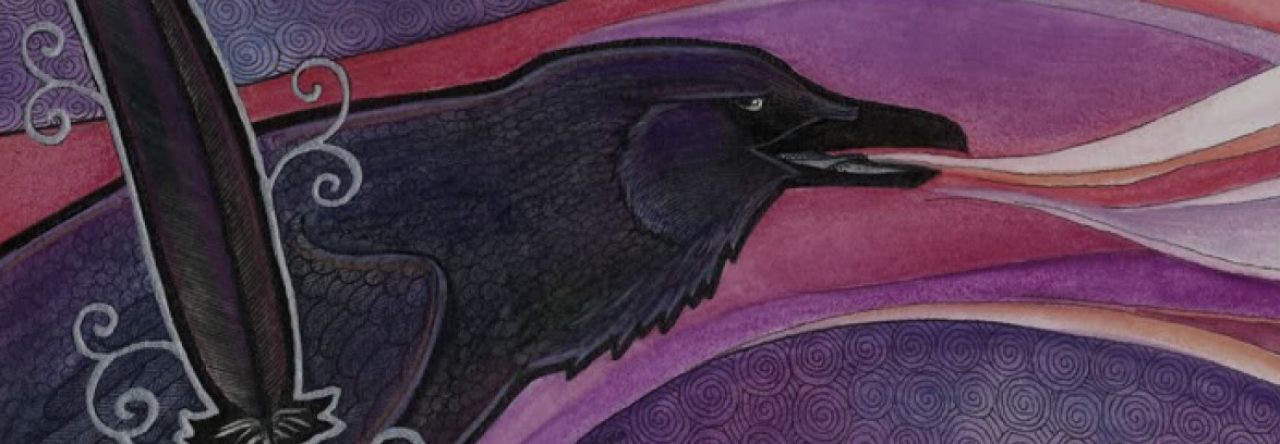 Amanda Pillar is an award-winning editor and author who lives in Victoria, Australia, with her husband and two cats, Saxon and Lilith.
Amanda Pillar is an award-winning editor and author who lives in Victoria, Australia, with her husband and two cats, Saxon and Lilith.Amanda has had numerous short stories published and has co-edited the fiction anthologies Voices(2008), Grants Pass (2009), The Phantom Queen Awakes(2010), Scenes from the Second Storey (2010), Ishtar(2011) and Damnation and Dames (2012). Her first solo anthology was published by Ticonderoga Publications, titled Bloodstones (2012). The sequel, Bloodlines, was published in 2015.
Amanda’s first novel, Graced, was published by Momentum in 2015.
In her day job, she works as an archaeologist.
Your most recent work is Survivor, a novella in the same universe as your novel Graced. The main character of Survivor is a woman who has been traumatised and lives with a resultant physical disability. Can you tell us something about how you approached disability and trauma in this work?
When I started to work on the Graced universe, I wanted it to represent a wide range of people – different races, different backgrounds,  and different levels of ableness. Billie (one of the main characters) came to me with her disability – a broken and badly healed hip caused by physical trauma.
and different levels of ableness. Billie (one of the main characters) came to me with her disability – a broken and badly healed hip caused by physical trauma.
 and different levels of ableness. Billie (one of the main characters) came to me with her disability – a broken and badly healed hip caused by physical trauma.
and different levels of ableness. Billie (one of the main characters) came to me with her disability – a broken and badly healed hip caused by physical trauma.I have friends and family who have been affected by various mobility issues, and drew on their experience (and my own) to ensure that Billie was well-rounded as a character. I wanted Billie to be Billie, and not a representation of disability. I was also able to use some personal experience as to how it might feel to have a damaged hip, as I injured mine during a trek on the Inca Trail. I know the pain of stairs when you can barely lift your leg!
As well as being a writer, you’re an editor, and have edited several anthologies, including Bloodlines from Ticonderoga Press, which recently won the Aurealis Award for Best Collection. How do you approach editing anthologies, in terms of story selection and working with authors? Are there any tips you can give people who are thinking of working as editors as well as writers?
When I develop the idea for a collection, I have a vague idea of what I would like to see from authors. But authors often surprise me and send me stories I didn’t even consider fitting with the theme! (I love it when that happens.) But the main things I look for are:
– The story is well-written
– The story has a plot
– The story is on theme
– The story explores new ideas or new takes
Once I’ve worked out which stories work best with the theme, I then have to decide which of those work best together. An anthology is a book, and needs to feel cohesive. Some stories may be fantastic, but if they don’t work with the others, or duplicate certain ideas (e.g. If it’s a monster story and there’s two Godzillas, for example) then I have to pick which one works best in the whole.
For people who want to get into editing, the biggest advice I can give is: Don’t rewrite someone’s work how YOU would have written it. That isn’t editing. Editing is bringing out the best of the story in line with the author’s voice, tone and goal.
What work do you have planned for the future? Can we expect to see more in the Graced universe?
Yes! I plan to write more in the Graced series and I have a the sequel novel drafted! But I have also just started working on a new series, as well. A dark urban fantasy with romance elements 🙂
What Australian work have you loved recently?
Cleverman! I just started this series, but I’m loving it. I’m a sucker for superheroes, and I really enjoy seeing Aussie talent on TV!
Which author (living or dead) would you most like to sit next to on a long plane trip and why?
Ohh, this isn’t easy. It would probably change on any given day. Today, I reckon Oscar Wilde. He’d be a blast to hang around with – he’d probably drink the minibar dry.
 This interview is cross-posted to the 2016 Snapshot blog, along with all the other Snapshot interviews.
This interview is cross-posted to the 2016 Snapshot blog, along with all the other Snapshot interviews. 
Leave a Reply